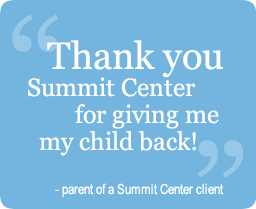BY JEAN SUNDE PETERSON (co-author of Bright Complex Kids with Dr. Dan Peters)
I used to say, smiling, when discussing perfectionism that I wanted my surgeon, dentist, mechanic, electrician, and plumber to be perfectionists—but not my friends, spouse, or colleagues. But perfectionism, of course, isn’t so clear cut.
In my view, striving for excellence, with reasonable personal standards and no apparent negative effect on well-being, is not perfectionism. For example, if students’ competitive activities and academic life involve joyous immersion, moments of exhilaration, comfortable connection with fellow participants, and positive emotions, then parents and educators can simply smile and be inspired.
Striving for excellence is often viewed as good, and unforgiving perfectionism as “bad.” Parents, grandparents, and guardians may wring their hands over the latter. They may observe in kids high stress, preoccupation with mistakes, tantrums, unreasonable self-expectations, chronic self-criticism and dissatisfaction, unwillingness to take even small social and academic risks, constant comparison with peers, assumptions that others are observing critically, and inability to enjoy any activity, for example.
When Perfectionism Is a Problem
My focus here is on perfectionism that affects students and families negatively and may affect students’ learning, ease at school, and current and future relationships. It is important to acknowledge that, especially if parents tend to see any passionate investment as “too much stress” based on their own experiences, they may mistakenly view striving for excellence as a problem. Constant parental anxiety can add a layer of stress.
If a student’s perfectionistic tendencies negatively affect health, well-being, relationships, or schoolwork, they might warrant formal intervention, including medication for anxiety. However, I caution against making pathology the default perception of social and emotional challenges. The following admonitions offer alternatives.
Admonitions for Parents and Other Invested Adults
Avoid repeatedly calling attention to perfectionism, since that’s unlikely to be helpful. Kids with perfectionistic behaviors and emotional reactions probably recognize them as problems, but compulsivity is difficult to corral.
Remember that kids who struggle with perfectionism are much more than perfectionists. They are, foremost, children or teens who are developing an identity and are deserving of respect and support. Introducing a struggling child to adult friends with, “This is our perfectionist,” may have long-lasting effects on the child’s self-concept and family relationships.
Focus on staying poised—not responding dramatically to a child’s or teen’s emotional outbursts. Demonstrating love and concern does not require matching the intensity of extreme emotions. Tell yourself, “This isn’t a catastrophe.”
If you stay poised, with a compassionate expression, even when a perfectionistic child or teen has a meltdown, you model emotional differentiation—the ability to be in the presence of others’ strong emotions but not be swallowed up by them.
Don’t feel obliged to fix or resolve difficult situations. In fact, “rescuing” does not empower kids. Instead of viewing struggle as “bad,” try to see it as building resilience.
Avoid focusing on the grade or other evaluation. Future well-being does not depend on it, really.
Don’t assume your child or teen has wants and needs similar to yours at that age. Assuming similarity, and overreacting, may exacerbate the problem, making it feel catastrophic—beyond appropriate frustration or disappointment. If you sense you are overreacting, step back, breathe, and consider the potential impact of what you say and do.
View perfectionism, and other emotional struggles, through a developmental lens—consider what tasks the child may be struggling with: determining who they are, what they expect of themselves and what others expect of them, how to be more independent, how to handle relationships, how to make sense of gender and sexuality.
Remember that developmental transitions may be difficult because a life stage is being left behind. Kids might be feeling a vague sense of loss. Because of intensity and sensitivities associated with high ability, bright kids may especially struggle with a new school level, puberty, or leaving for college. Perfectionism may be an attempt at control.
Be alert for depression. Anxiety about others’ expectations is common with perfectionism. But consequent changes in appetite, sleep, relationships, and health might reflect depression. Asking, “Should I worry about you?” may start an important conversation about self-harm.
Avoid the impulse to “fix” perfectionistic behaviors. Any tantrum, meltdown, or panic from “felt pressure of expectations” doesn’t have to be stopped—unless something or someone is being harmed. We don’t want our kids to “feel bad,” but learning to deal with bad feelings can give them an advantage in life. Learning to tolerate bad feelings can help parents too. Growing up is a challenging process. It is important to acknowledge this to validate kids’ complicated feelings.
Create a small, safe area at home for outbursts (including soft toys, pillows to rest on or pound, dim lighting, or music) or for calming when a meltdown seems imminent. This strategy acknowledges the intensity of kids’ feelings, but encourages self-awareness and calming strategies, which, if practiced, can result in fewer times when kids feel out of control.
Perfectionistic kids and adults often cannot enjoy the trip (and the scenery) because they are preoccupied with the destination—evaluation, judgment, praise. Help them enjoy the trip: “How does that feel (to be so absorbed in writing/building and being so creative)?”
Let your words and actions communicate unconditional love and support, which are not dependent on “perfect” products: “I’m so glad you are who you are.” “I’m so glad you’re my kid.”
Avoid constantly reassuring kids, since over-reassuring might convey that there is something to worry about.
Invite a perfectionistic child to create a mantra as a reminder that mistakes are okay: “Everyone makes mistakes.” “I’m human.”
Include noncompetitive, ungraded activities at home, in school, and in the community. Taking off the pressure of “evaluation” can help kids find enjoyment in the things they do.
When they come home from school, ask an open-ended question. Try “How are you feeling about your day?” instead of, “How did you do on the test?”
Err on the side of nonjudgment. Try, “That’s an interesting view.” “How do you feel about what they said?” or “How did you feel while you were working on it?”
Generate Discussion
Talking about perfectionism can be helpful. To provoke self-reflection in children and teens, ask these questions:
- Where, in your life, do you like things to be “perfect”? Where not?
- Some people think perfectionism is mostly about control. What do you think? What is going on in your life when you are most perfectionistic?
- If 10 is “extremely tense when you do something that will be graded,” and 1 is “very relaxed,” what number usually applies to you when you’re working on something?
- If you heard someone say that perfectionism always means being “afraid of failure,” how would you respond?
- If someone said to you, “Bright kids are perfectionists because they are able to make things perfect,” how would you respond?
Conclusion
Caring adults can lessen the burdens of perfectionism for kids if they can stay poised and nonjudgmental, even in intense situations. Not seeing strong frustrations as catastrophic, being a good listener when perfectionists need to talk, and remembering that all kids are dealing with developmental challenges can also be helpful.
ABOUT THE AUTHOR: Jean Sunde Peterson, Ph.D., is professor emerita and former director of school counselor preparation at Purdue University. A licensed mental health counselor with considerable clinical experience with children and families, she conducts workshops on academic underachievement, high-ability students’ social and emotional development, prevention- and development-oriented group work with children and adolescents, bullying, listening skills for teachers and parents, and more. Dr. Peterson has authored more than 130 books (including Get Gifted Students Talking, How (and Why) to Get Students Talking, and Bright, Complex Kids), journal articles, and invited chapters, and her articles have appeared in journals such as Journal of Counseling & Development, Gifted Child Quarterly, Professional School Counseling, and International Journal of Educational Reform. She has received 10 national awards for scholarship, as well as numerous awards at Purdue for teaching, research, or service, and was a state teacher of the year in her first career as a classroom teacher. She lives in Indiana.
“Perfectionism in Children: How Parents Can Help Bright, Complex Kids” originally appeared at freespiritpublishingblog.com. Copyright © 2021 by Free Spirit Publishing. Used with permission. All rights reserved.



